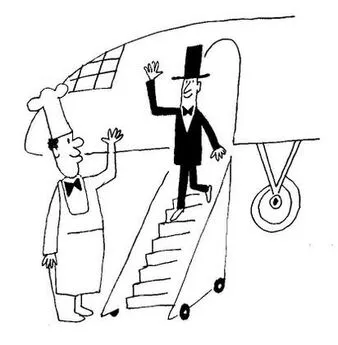ALEXANDER KENT - TO GLORY WE STEER
- Название:TO GLORY WE STEER
- Автор:
- Жанр:
- Издательство:неизвестно
- Год:неизвестен
- ISBN:нет данных
- Рейтинг:
- Избранное:Добавить в избранное
-
Отзывы:
-
Ваша оценка:
ALEXANDER KENT - TO GLORY WE STEER краткое содержание
Portsmouth, 1782. His Britannic Majesty's frigate, Phalarope, is ordered to assist the hard-pressed squadrons in the Caribbean. Aboard is her new commander-Richard Bolitho. To all appearances the Phalarope is everything a young captain could wish for, but beneath the surface she is a deeply unhappy ship-her wardroom torn by petty greed and ambition, her deckhands suspected of cowardice under fire and driven to near-mutiny by senseless ill-treatment.
TO GLORY WE STEER - читать онлайн бесплатно полную версию (весь текст целиком)
Интервал:
Закладка:
'And you, Mr. Herrick?' Sir Robert craned round his own captain to stare along the table. `Your exploits at Nevis seem a trifle haphazard? But against that you obtained the result you intended no doubt?'
Herrick gave a broad grin. 'Captain Bolitho has already pointed out to me the pitfalls of too much luck, sir!'
'Did he indeed?' The admiral's eyebrows rose slightly. 'I am gratified to hear it.'
And on it went in the same vein. The admiral would question and listen, or when that failed would openly provoke the luckless officer into some excited and unguarded reply.
The loyal toast was called for by the junior officer present. Midshipman Neale, dwarfed on either side by Proby and Ellice, squeaked, `Gentlemen, the King!' and then sank into a blushing silence.
Bolitho noticed that the admiral's right hand was curled like a claw around his goblet, and when the latter saw him looking at it the admiral snapped petulantly, 'Damned rheumatism! Had it for years!'
For a few moments Bolitho took time to appreciate the man sitting by his side. Not the admiral, with all his petty foibles, his unfair uses of privilege and rank, but the actual man.
He was old, probably in his sixties, and to Bolitho's knowledge had not set foot ashore for more than a few days at a time in the last ten years. He had shifted his flag from ship to ship, dealing with problems and strategy which Bolitho could only half imagine.
The admiral was looking at him unwinkingly. 'Are you still -wondering why I came, Bolitho?' He did not wait for an answer. 'I commanded a frigate myself many years ago. The happiest time in the Navy for me. Life was easier in many ways then. But the stakes were not so high.' The shutter dropped again. 'I came because I wanted to see what you have made of this ship.' He tugged at his chin as if to seek some way of avoiding a compliment. 'What I find does not displease me entirely.' He dropped his voice, so that it was almost lost in the newly awakened conversation around the table. 'Most of your officers appear to have great respect for you. I know from experience that it is very hard to come byl'
Bolitho gave a small smile. 'Thank you, sir.'
'And you can remove that stupid smile from your face!'
The admiral shifted beneath his coat. 'I like to know the men whom I command! When I see a sail on the horizon I don't wish to know the size of her guns or the state of her paintwork. I want to know the mind of the man in control, see? He stared over the heads of the lolling officers. ' England is fighting for her life. It is a war of defence now. The attack will come later, perhaps years later, after I am dead and buried! But until that time England depends on her ships, maybe only a couple of hundred ships which are in a position to act to full advantage!' He tapped on the table, so that the others fell silent and turned to listen. 'And those ships depend on their captains and no one else!'
Bolitho opened his mouth to speak but the admiral said testily, 'Hear me out! I know your reputation now. You are an idealist in many ways. You have hopes for better conditions for your men, so that they can make the sea an honourable career again.' He waved a finger. 'When I was younger I wanted all those things and more beside. But a good captain is the one who accepts all these difficulties as they stand and still manages to run an efficient ship, one worthy of honour and praise!'
He glared round the table. 'Well, gentlemen, did I make myself understood?'
Bolitho followed his gaze. Vibart, flushed and unsmiling. Herrick, still grinning and unquenched by the admiral's earlier sarcasm. Rennie, stiff-backed but with eyes so glassy that they were beyond focus. Old Daniel Proby, humbled by being with such illustrious company, yet whose face was stiff with sudden pride, as if he had heard a deeper meaning in the admiral's words. And Ellice, the bucolic surgeon, who had been drinking without pause since they had arrived at table. Bolitho could find time to pity Ellice. Poorly paid, like all ships' surgeons, it was no wonder he was more of a butcher than a doctor. It was a race which would win. Drink or a fatal mistake, it was merely a matter of time.
Okes, still smarting from the admiral's keen appraisal of the half-remembered attack on Mola Island. Bolitho noticed how he kept darting quick, desperate glances towards Farquhar, who by comparison was calm and impassive, his thoughts perhaps far away. Maybe still back there below the shattered bridge where he had been left to die by the man who now sat watching him. The fact that Farquhar had made neither comment nor complaint must be all the more worrying for Okes, Bolitho thought grimly.
And the two other midshipmen, Maynard and Neale. Excited and untouched by the deeper channels of comment and thought around them, Bolitho was suddenly very aware of his responsibility to all of them.
The admiral stood up and lifted his glass. 'A toast!' His pale eyes flashed below the low beams. `Death to the French!'
The glasses came up as one and the voices rumbled the reply, 'And confusion to our enemies!'
The admiral. called to his captain, 'Time we were going, Cope!'
Bolitho followed him to the upperdeck, only half listening to the scamper of feet and the hurried creak of oars alongside. It was over. The admiral would never admit a mistake, but Bolitho knew that the worst was behind him. Phalarope was free of disgrace at last.
He lifted his hat' as the admiral crossed to the port and waited until he had vanished to the waiting barge. Then he clamped on his hat and began to pace the deserted quarterdeck, his hands clasped behind him.
The admiral had also made it plain in his own way that if the ship was free of disgrace it was up to her captain to keep her so.
He looked at the riding lights dancing across the water and listened to the plaintive scrape of a violin and the accompanymg sadness of an old shanty. If the men could still sing there was hope for all of them, he thought.
13. DANGER FROM WITHIN
The pipes shrilled in salute as Richard Bolitho stepped through the ornate entry port and on to the Formidable's wide deck. Automatically he doffed his hat to the quarterdeck, and as he returned the greeting of the flagship's officer of the watch he allowed his eyes to move swiftly up and around him, taking in the busy activity, the seemingly endless deck space and the long lines of gleaming guns.
An impeccable midshipman in white gloves crossed the deck at a trot, and under the beady eye of the duty officer led Bolitho aft towards the great stem cabin, to which every available captain had been summoned at an hour's notice.
Bolitho had been toying with his lonely breakfast, pondering on the previous night's strange dinner party and Sir Robert Napier's persistent questions, when Maynard had hurried into his cabin with news of the signal. As he had hurriedly changed into his best uniform Bolitho had wondered why Sir Robert had not mentioned this meeting with the Commander-in-Chief. He must have known about it. As Bolitho had stared unseeingly at his reflection in the bulkhead mirror he had wondered if Sir Robert was making just one more private test. He probably kept his glass trained on the Phalarope's deck from the moment Formidable had hoisted her general signal.
He almost cannoned into the midshipman and realised that they had reached the great cabin. The youngster called, 'Captain Richard Bolitho of the Phalarope!'
But only those officers standing near the door took any notice, and soon returned to their own busy conversation. For that Bolitho was grateful. He made his way to one corner of the cabin, and as one messman took his hat another placed a tall glass of sherry in his hand. Neither spoke a word, and Bolitho guessed that it was no easy matter to remain calm and unruffled when serving the Commander-in-Chief.
He sipped at his glass and carefully studied the other officers. There must be about thirty captains present, he decided. Captains of every size and shape, of every age and seniority. After the first scrutiny Bolitho decided that he must be the most junior, but, just as he had reached this conclusion he felt a movement at his elbow and turned to meet the gaze of a tall, gangling lieutenant whom he vaguely remembered as the commander of the little brig, Witch of Looe.
The latter raised his glass and said quietly, `Your health, sir! I was coming across to see you and tell you how glad I am of your safe return.'
Bolitho smiled. `Thank you.' He shrugged. `I am afraid your name has escaped me.'
`Philip Dancer, sir.'
`I will remember it in future.' Bolitho saw the lieutenant loosening his neckcloth with one finger and suddenly realised that he was actually nervous. It "was not easy to be so junior in such an illustrious gathering. He said quickly, `I expect this seems a bit luxurious after your little brig?'
Dancer grimaced. `Just a bit!'
They both looked at the great stern windows with the wide gallery beyond where the admiral could take an undisturbed walk above the ship's own wake. There were long boxes of potted plants too, and on the handsome sideboard Bolitho caught a glimpse of gleaming silver and cut glass below a fine painting of Hampton Court Palace.
Then the buzz of conversation died away, and every man turned to face a side door as the small procession entered the cabin.
Bolitho was shocked to see the change which had come over Sir George Rodney since he had last seen him some two years earlier. Beneath the resplendent uniform with its bright ribbon and decorations the admiral's once upright figure appeared bent and drooping, and his mouth, now set in a tight line, betrayed the illness which had plagued him for so many months. It was hard to picture him as the same man who had overwhelmed a powerful enemy force only two years ago to break through and relieve the besieged fortress of Gibraltar, or who had attacked and sacked St. Eustatius and taken over three million sterling back to England as a prize.
But the eyes were the same. Hard and steady, as if they drew and contained all the energy of his being.
At his side his second in command, Sir Samuel Hood, made a sharp contrast. He looked calm and composed as he studied the assembled officers, his features dominated by his large, arrogant nose and high forehead.
Behind his two superiors Sir Robert Napier looked almost insignificant, Bolitho thought.
Sir George Rodney lowered himself into a tall chair and folded his hands in his lap. Then he said curtly, `I wanted you all here to tell you that it now seems likely the French and their allies will attempt a final overthrow of English forces in this area.' He coughed shortly and dabbed his mouth with a handkerchief. 'Comte de Grasse has assembled a strong force of ships of the line, the most powerful vessels ever gathered under one flag, and were I in his fortunate position I would have no hesitation in preparing to do battle.'
He coughed again, and Bolitho felt a tremor of uneasiness transmit itself through the watching, officers. The strain of years of planning and fighting were paring Rodney away like a knife blade. When he had sailed for England there was not an officer in his fleet who did not believe it was his last journey and that another would return to take his place. But somewhere within that tired body was a soul of steel. Rodney intended to see no replacement in the West Indies to take either the fruits of his hard and unsparing work or the shame and misery of possible defeat.
Sir Samuel Hood said evenly, Intelligence has reached us that there is more to de Grasse's intentions than a mere sea victory. He has been gathering seasoned French troops, as well as supplying arms and assistance to the American colonials. He is a shrewd and dedicated strategist, and I believe he intends to exploit whatever successes he has already made.' He looked suddenly across the nearest heads and fixed his heavy lidded eyes on Bolitho.
Читать дальшеИнтервал:
Закладка:








